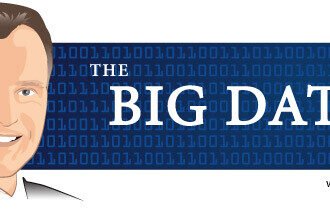Former colleague Rachael King writes a BW story about context-aware shopping. I feel slightly stunned. It’s as if my chapter on the Shopper (one I was most skeptical about, next to Lover) is actually coming true. The woman in the story actually goes through the store, scans items, and gives the store lots of other information about herself — in return for customized service and coupons.
Tanowitz owes her newfound savings of time and money to software that gathers vast amounts of information—not just a person’s whereabouts, but also such data as interests, buying habits, even social circles. Known as context-aware software, the technology then harnesses that information to provide useful tools to the smartphone user. At Stop & Shop, that can mean money-saving coupons. In other settings, context-aware technology can provide crucial, at-a-glance background information about a business associate or prospective client. Or it may simply aid travelers in finding a place to eat or locating where they parked their car.
My question: Does Ellen Tanowitz represent an average shopper? That was my doubt as I wrote the chapter in the book. Supermarkets had to …
Former colleague Rachael King writes a BW story
about context-aware shopping. I feel slightly stunned. It’s as if my
chapter on the Shopper (one I was most skeptical about, next to Lover)
is actually coming true. The woman in the story actually goes
through the store, scans items, and gives the store lots of other
information about herself — in return for customized service and coupons.
Tanowitz owes her newfound savings of time and money to software that
gathers vast amounts of information—not just a person’s whereabouts,
but also such data as interests, buying habits, even social circles.
Known as context-aware software, the technology then harnesses that
information to provide useful tools to the smartphone user. At Stop
& Shop, that can mean money-saving coupons. In other settings,
context-aware technology can provide crucial, at-a-glance background
information about a business associate or prospective client. Or it may
simply aid travelers in finding a place to eat or locating where they
parked their car.
My question: Does Ellen Tanowitz represent an average shopper? That was
my doubt as I wrote the chapter in the book. Supermarkets had to make
this technology easy and useful, while skirting people’s privacy fears.
I wasn’t sure they could pull it off. I guess deep down I’m still
not — but closer than I was before I read Rachael’s story.








